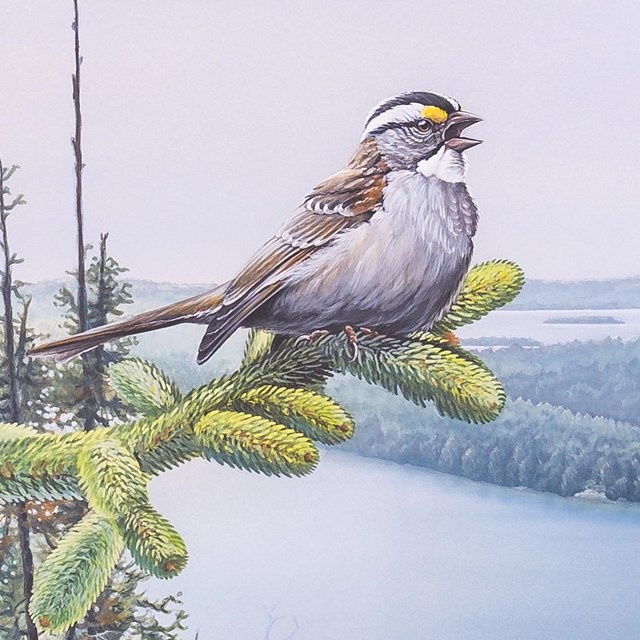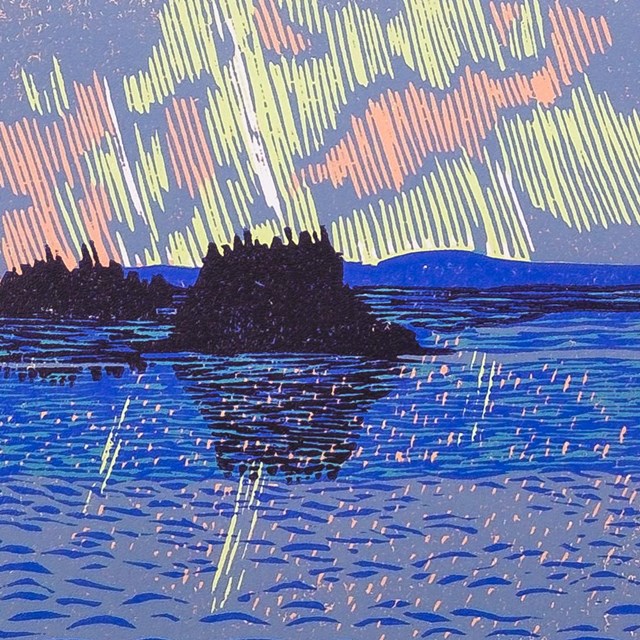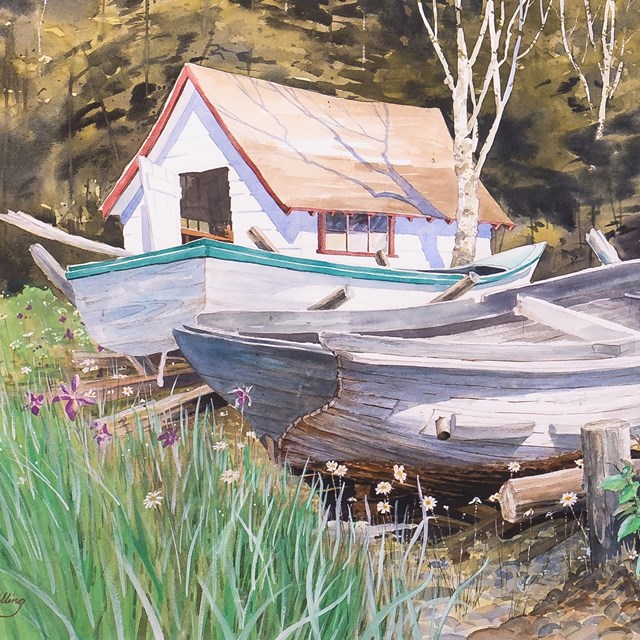|
I don’t have to do this These things can kill you
and I was no longer strong enough, Wind caught my canoe, twirled it, and I went in. Cold pushed my air out. I gasped and splashed toward shore, toward the beautifully indifferent spruce and cedar, the wild iris and tiger lilies blooming late after their rainy spring. When I went over, my book bag went with me. A collection of Merwin poems, a book of essays, and the journal I hope to copy this into, all are wet, sodden.
I have them butterflied on my work table now, hoping the pages won’t stick together because I want to keep these books, stained and rippled, carrying a bit of Lake Superior with them. My wallet on the other hand, is ruined. Carried upstream on the seiche—
water pushed back toward the source— until the flow turns and my canoe stalls on mud banks. Alder thickets, mosquitoes and deer flies. Robins laugh from the shade. I can do nothing but slog back, pulling my boat through slime, slapping at bugs. Then, high in the mud . . . tracks. I climb up, kneel before them and sketch one in my notebook to compare with a guide at home: two and three quarters wide; three and three quarters long; angular toes, the center two noticeably larger than the two outside. The track of a small wolf, its outline clear, the edges sharp, until the seiche returns and fills the creek, releasing my canoe. Water rises to wolf print, dissolving it, dirt stirred up then back toward the big lake, a gentle pull but strong enough to carry me out past mud banks, the sedge and rushes, jewelweed glowing orange, oxeye daisies, out past the thickets, shaded at midday, creatures hiding inside. (reprinted from If the World Becomes So Bright, Wayne State University Press, 2009, with the permission of the author.) A quick glimpse
in my eye’s corner— black wolf running always running ears back fur shaggy hackles up a touch of white or silver on its belly beside the lake over rock and lost between spruce and cedar before I turn (reprinted from If the World Becomes So Bright, Wayne State University Press, 2009, with the permission of the author.) glisten like bone
hold the sun the brightest objects on Scoville Point nestled in a bowl of basalt and blueberries bone shed after rituals of mating eleven tines a side the first polished and sharpened to stab and dominate the bone-white palms rivered with lines of veins that once fed the velvet not a memory of death this time but bone shed celebrating in bone brightness the spring-born calf the generations of moose (first appeared in The Dunes Review, reprinted with the permission of the author.)
|
Last updated: January 15, 2020



